
-
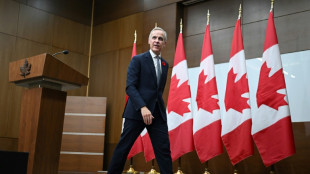 Canada PM says Xi talks 'turning point', apologises to Trump
Canada PM says Xi talks 'turning point', apologises to Trump
-
Iranian tech prodigies battle it out with robots

-
 Maldives begins 'generational ban' on smoking
Maldives begins 'generational ban' on smoking
-
Explorers seek ancient Antarctica ice in climate change study
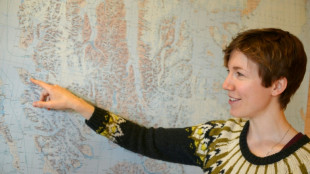
-
 India's Iyer discharged from hospital after lacerated spleen
India's Iyer discharged from hospital after lacerated spleen
-
Serbia marks first anniversary of deadly train station collapse

-
 Latin America weathered Trump tariffs better than feared: regional bank chief
Latin America weathered Trump tariffs better than feared: regional bank chief
-
Bangladesh dockers strike over foreign takeover of key port
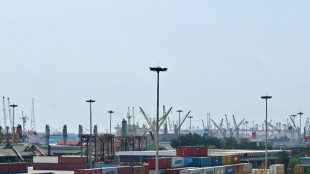
-
 Tanzania president wins election landslide after deadly protests
Tanzania president wins election landslide after deadly protests
-
Dodgers, Blue Jays gear up for winner-take-all World Series game seven

-
 Taiwan's new opposition leader against defence spending hike
Taiwan's new opposition leader against defence spending hike
-
Dodgers hold off Blue Jays 3-1 to force World Series game seven

-
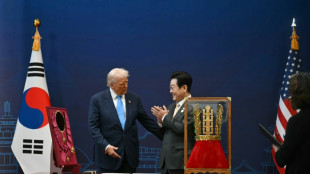 Crowns, beauty, fried chicken: Korean culture meets diplomacy at APEC
Crowns, beauty, fried chicken: Korean culture meets diplomacy at APEC
-
Panama wins canal expansion arbitration against Spanish company
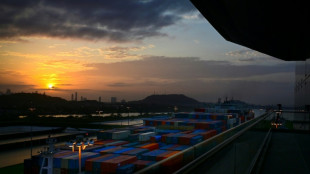
-
 Myanmar fireworks festival goers shun politics for tradition
Myanmar fireworks festival goers shun politics for tradition
-
China to exempt some Nexperia orders from export ban

-
 Sixers suffer first loss as NBA Cup begins
Sixers suffer first loss as NBA Cup begins
-
China's Xi to meet South Korean leader, capping APEC summit
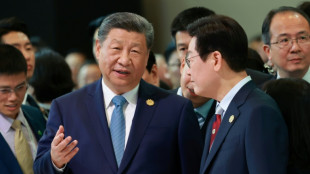
-
 Japan's Chiba leads after Skate Canada short program
Japan's Chiba leads after Skate Canada short program
-
Finland's crackdown on undocumented migrants sparks fear
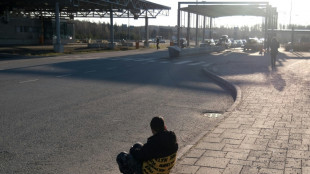
-
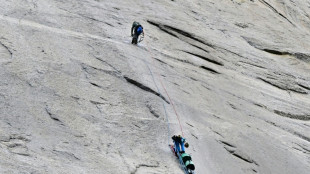 Climbers test limits at Yosemite, short-staffed by US shutdown
Climbers test limits at Yosemite, short-staffed by US shutdown
-
Gstaad gives O'Brien record 21st Breeders' Cup win

-
 After the tears, anger on Rio's blood-stained streets
After the tears, anger on Rio's blood-stained streets
-
Sinner boosts number one bid in Paris, to face Zverev in semis

-
 Springer back in Toronto lineup as Blue Jays try to close out Dodgers
Springer back in Toronto lineup as Blue Jays try to close out Dodgers
-
Nationals make Butera MLB's youngest manager since 1972

-
 Guirassy lifts Dortmund past Augsburg ahead of Man City clash
Guirassy lifts Dortmund past Augsburg ahead of Man City clash
-
G7 says it's 'serious' about confronting China's critical mineral dominance
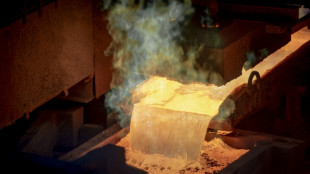
-
 NFL fines Ravens $100,000 over Jackson injury status report
NFL fines Ravens $100,000 over Jackson injury status report
-
NBA refs to start using headsets on Saturday

-
 Trump says Christians in Nigeria face 'existential threat'
Trump says Christians in Nigeria face 'existential threat'
-
French-Turkish actor Tcheky Karyo dies at 72

-
 Food stamps, the bulwark against hunger for over 40 mn Americans
Food stamps, the bulwark against hunger for over 40 mn Americans
-
Trump keeps world guessing with shock nuclear test order

-
 Wall Street stocks rebound on Amazon, Apple earnings
Wall Street stocks rebound on Amazon, Apple earnings
-
US Fed official backed rate pause because inflation 'too high'

-
 Prayers and anthems: welcome to the Trump-era Kennedy Center
Prayers and anthems: welcome to the Trump-era Kennedy Center
-
Swiss central bank profits boosted by gold price surge
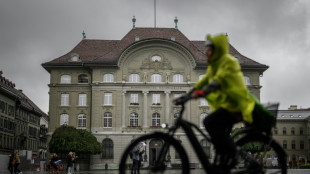
-
 Sinner beats Shelton to boost number one bid in Paris
Sinner beats Shelton to boost number one bid in Paris
-
French court jails Bulgarians for up to four years for Holocaust memorial defacement
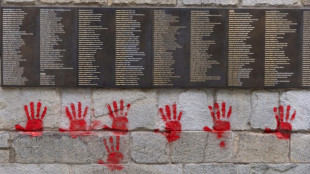
-
 Profits dip at ExxonMobil, Chevron on lower crude prices
Profits dip at ExxonMobil, Chevron on lower crude prices
-
Ashraf and Mirza skittle South Africa as Pakistan win 2nd T20

-
 2,000 trucks stuck in Belarus after Lithuania closes border: association
2,000 trucks stuck in Belarus after Lithuania closes border: association
-
French lawmakers reject wealth tax proposal in budget debate

-
 Premier League blames European expansion for lack of Boxing Day games
Premier League blames European expansion for lack of Boxing Day games
-
Bublik sets up Auger-Aliassime semi-final at Paris Masters

-
 World's most expensive coffee goes on sale in Dubai at $1,000 a cup
World's most expensive coffee goes on sale in Dubai at $1,000 a cup
-
Trump stirs global tensions, confusion with nuclear test order

-
 Panic across US as health insurance costs set to surge
Panic across US as health insurance costs set to surge
-
Court eases ban on Russian lugers but Olympic hopes on thin ice


'Palestine 36' shines light on Arab revolt against British rule
In "Palestine 36," director Annemarie Jacir recounts a year of Arab revolt against British colonial rule that she says is crucial to understanding current events in the Middle East.
"You can't understand where we are today without understanding 1936," Jacir told AFP a day after the film's world premiere at the Toronto International Film Festival.
The Palestinian filmmaker, who lives in the Israeli city of Haifa, was motivated to make the film, in part, to redress a lack of awareness about the consequences of British policies during the so-called mandate period, before Israel's creation in 1948.
"I wanted to really point the finger at the British," she said.
The film features a mostly Arabic-speaking cast, including Hiam Abbass from HBO's "Succession," and Jeremy Irons as a British high commissioner unsettled by rising violence and protests against the colonial administration.
With Jewish immigration from Europe increasing and Palestinian villagers concerned about further loss of land, Arab support for armed revolt against the British surges.
The film details the brutal crackdown launched to contain the violence.
Villagers are beaten, people are arrested en masse while soldiers torch homes after searching them for weapons.
They are tactics Jacir said Israel's army learned from the British and have used since against Palestinians living under occupation.
But Jacir -- who was born in Bethlehem in the Israeli-occupied West Bank -- told AFP a key goal of the film was to shine a spotlight on the British colonial practice of divide and rule, which was used across the empire.
The narrative in "Palestine 36" builds toward the publication of the Peel Commission's report, a British inquiry into the causes of Arab and Jewish unrest in Palestine.
The commission recommended Palestine be partitioned -- with separate areas for Jews and Arabs -- a finding that influenced the United Nations-backed partition plan that coincided with Israel's creation.
"It was a British policy: first, we'll bring (Arabs and Jews) together," Jacir said.
Then "we separate... It was a tactic of control," she added.
Jacir said the reception for the film at Friday's world premiere was overwhelming.
"Yesterday was crazy," she told AFP, an outpouring of support likely tied to widespread outrage over the conflict in Gaza.
She voiced hope that the film could foster broader awareness about the lasting impacts of the British mandate period in Palestine.
"I'm shocked how many people have told me when I tell them about the film, they were like, 'the British were in Palestine?'"
British rule, she said, was "decisive."
D.Bachmann--VB


